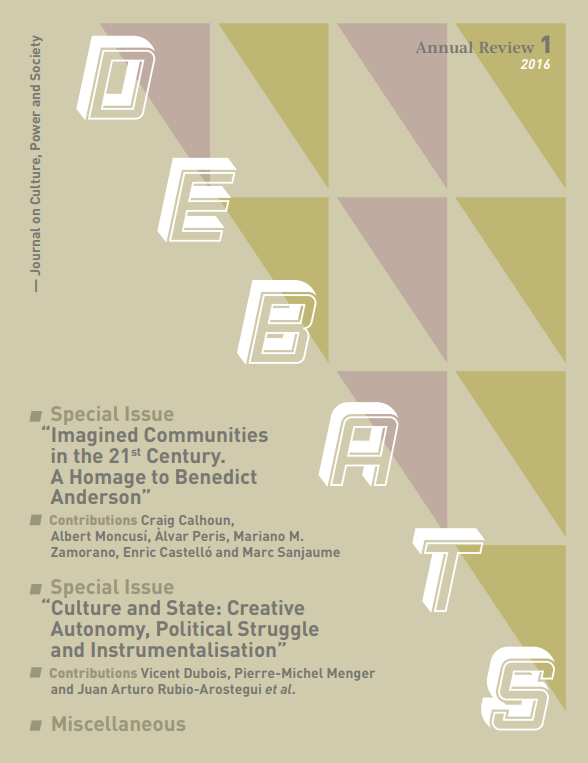Art, Politicisation and Public Action
Resumen
Cultural public action has progressively embraced two very different
concepts of Art and culture: one universalist and linking innovation to
democratisation; the other, differentialist and relativist, advocating a
non–hierarchisable plurality of artistic forms. What happens to these
differences within cultural public action and politicisation of the artistic
sphere? One of the main aporias of cultural policy is the gap between the
artist as an innovator and the general public, which can be seen from
both demand (a function of democratisation), and supply (a function of
support for creation) sides. This gap has been defended in a pessimistic,
aristocratic fashion (‘Baudelarian Modernity’), and through politicoaesthetical
rationalisation (avant–garde in nature). Yet in both cases, it
raises the question of the gap between the dynamics of creation and
of consumption — a gap that highlights the constant paradoxes that
arise from supposing a direct relationship between artistic innovation
on the one hand, and socio-political emancipation and progress on the
other. Ironically, it is the upper classes that lend the greatest support
for artistic daring. For both ideological and political reasons, most of
the avant-garde movement was ranged against the bourgeoisie. The
duality of the value of originality in Art (the aristocratic heroism of the
innovator versus the democratic individualism of the expressive artist)
point to two differing standpoints in the politicisation of art. This duality
offers two answers, which are now superimposed on this paradox.
Descargas
Descargas
Publicado
Cómo citar
Número
Sección
Licencia
Sin perjuicio de lo dispuesto en el artículo 52 de la Ley 22/1987 de 11 de noviembre de Propiedad Intelectual, BOE del 17 de noviembre de 1987, y conforme al mismo, los autores o autoras ceden a título gratuito sus derechos de edición, publicación, distribución y venta sobre el artículo, para que sea publicado en Debats. Revista de cultura, poder y sociedad.
Debats. Revista de cultura, poder y sociedad se publica bajo el sistema de licencias Creative Commons según la modalidad «Reconocimiento - NoComercial (by-nc): Se permite la generación de obras derivadas siempre que no se haga un uso comercial. Tampoco se puede utilizar la obra original con finalidades comerciales».
Así, cuando el autor o autora envía su colaboración, acepta explícitamente esta cesión de derechos de edición y de publicación. Igualmente autoriza a Debats. Revista de cultura, poder y sociedad, la inclusión de su trabajo en un fascículo de la revista para que se pueda distribuir y vender.











